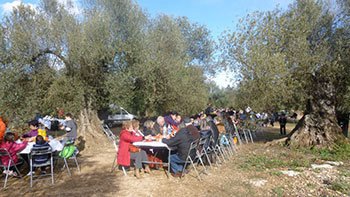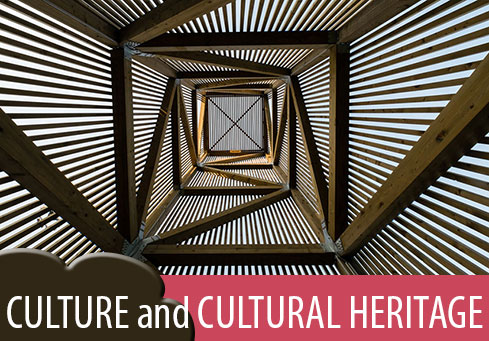Faro Convention Network (FCN)

The Faro Convention Network (FCN) is a platform made up of the heritage communities working together in line with the Faro Convention principles and criteria. The Network works towards identifying good practices and practitioners, it conducts workshops and supports members’ efforts in addressing challenges related to field of heritage. Furthermore, the Network aims to demonstrate the role of heritage in addressing the societal challenges faced today.
The Faro Convention Network will accompany (local) heritage communities interested in democratising heritage governance in affiliation with the Council of Europe, bringing these local good practices to European level.
Becoming part of the FCN is a self-assessed process. Interested heritage communities* are encouraged to go through a self-assessment exercise based on the Faro Convention principles and criteria. The Faro Convention Action Plan advocates that each heritage community has its own wisdom, knowledge and potential, and is capable of managing this process with the guidance and support of the Council of Europe (CoE) secretariat and the FCN members. Therefore, self-assessment, monitoring and evaluation are considered parts of a self-management process. While the principles and criteria are the products of an on-going reflection, they are revisited on a regular basis and adjusted according to feedback and a learning process embedded in the Faro Convention Action Plan. Lessons learned from the Action Plan, together with the tested good practices, are included in the recommendations for Strategy 21 implementation, as well as policy making for the members States of the CoE. Based on the principles and criteria, each heritage community initiative should conduct a self-assessment, responding to the points indicated in twelve criteria. It is expected that a heritage community may not meet all the criteria. In such cases, the heritage community, as an active member of the FCN, is expected to work with the Network to optimize its position. A self-assessment tool provides an opportunity to visualise the baseline measure vs. desired level, and to assist in the drawing up of a plan of action for each heritage community.
Affiliation with the FCN is a free association, based on the Faro Convention principles and criteria. Once a heritage community establishes an affiliation with the network, continuation is sustained through active dialogue and continued interest and action between members as well as the CoE Secretariat. If such progress is not assessed and demonstrated through the initiative, the heritage community might be considered a "Faro friend" until they are ready to be actively involved, and their CV would not appear on the CoE website among active members.
In this regard, an active member:
- becomes part of a pan-European Network and has access to the resources that the Network offers;
- has the opportunity to make their ‘invisible’ case ‘visible’ across 47 CoE member States;
- takes part in the assessment and spotlight visits, as appropriate;
- participates in the annual FCN meeting;
- contributes to the Faro Labs and tests the good practices to verify their cross-cultural validity;
- engages in joint actions, projects with other programmes and initiatives;
- maintains its visibility on the CoE website and promoted through the CoE activities;
- promotes the Faro Convention and Action Plan in their respective countries.
Faro Active Members >> Faro process >>
* While the term heritage communities is explicitly used in the Convention, based on the local context, different terms, including heritage groups, heritage teams, etc. could be used.
- The Faro Convention at work in Europe: selected examples
- The Faro Convention’s role in a changing society: building on a decade of advancement
- People, places, stories - Faro Convention inspired experiances
- Brochure - Action for a changing society
- Polish civil society and the aims of the Faro Convention
- Heritage and Beyond
- European Manifesto on Multiple Cultural Affiliation
- Dividing lines, connecting lines: Europe's cross border heritage



